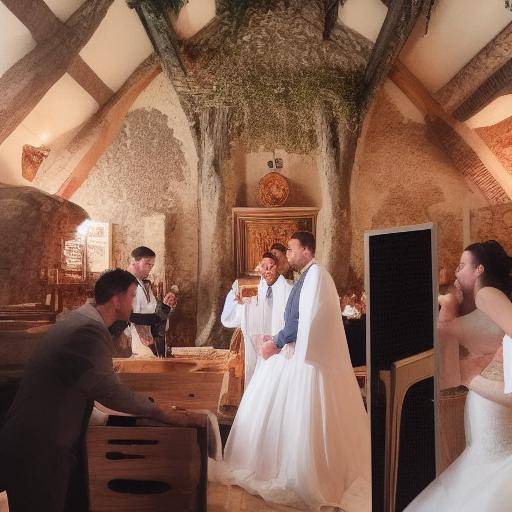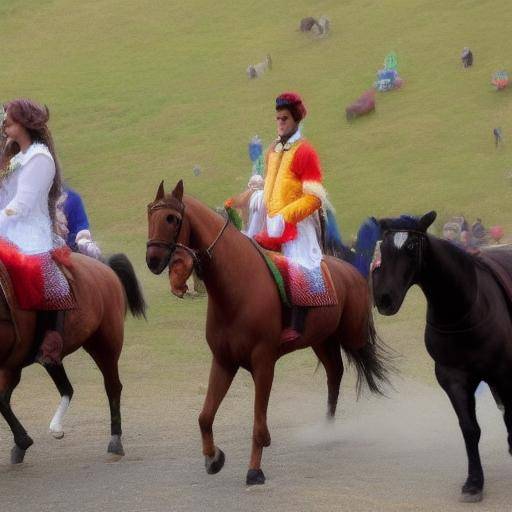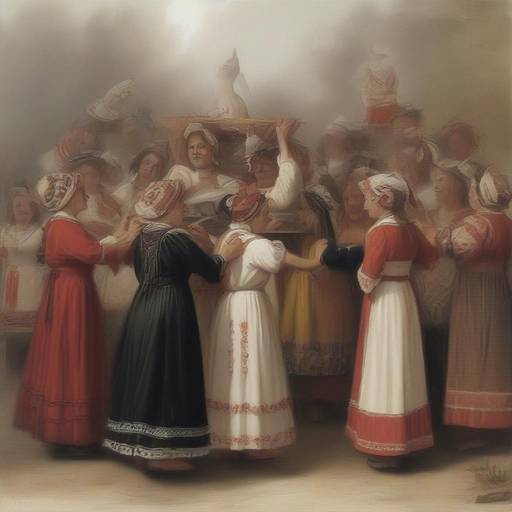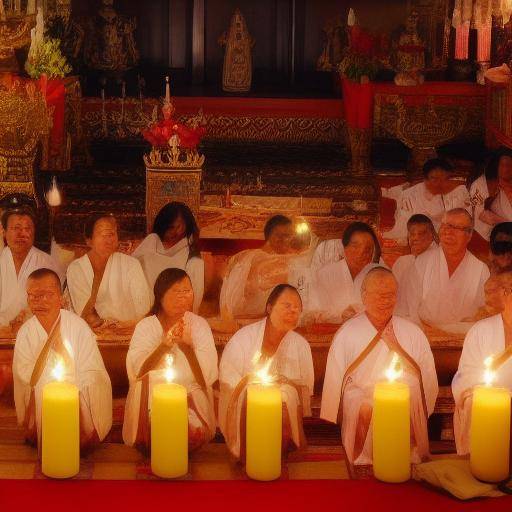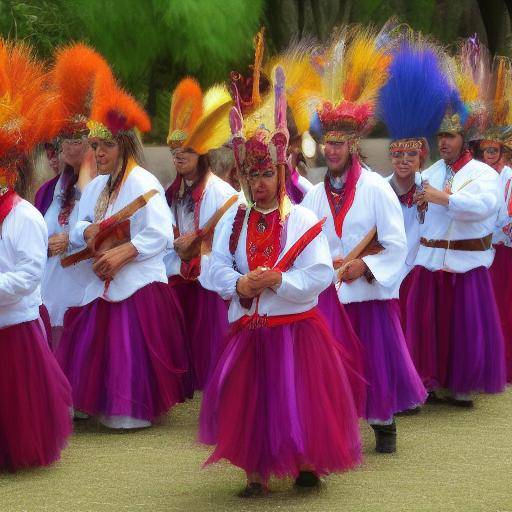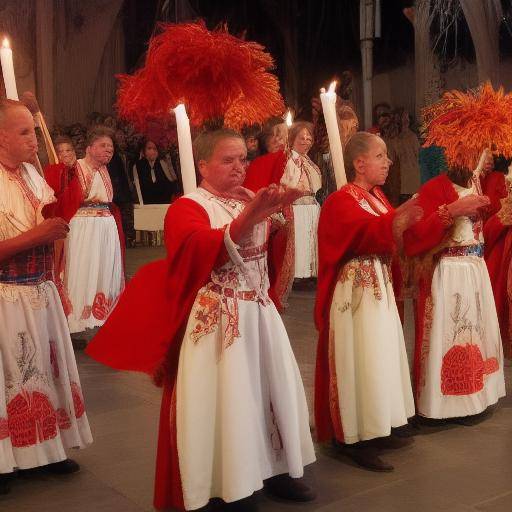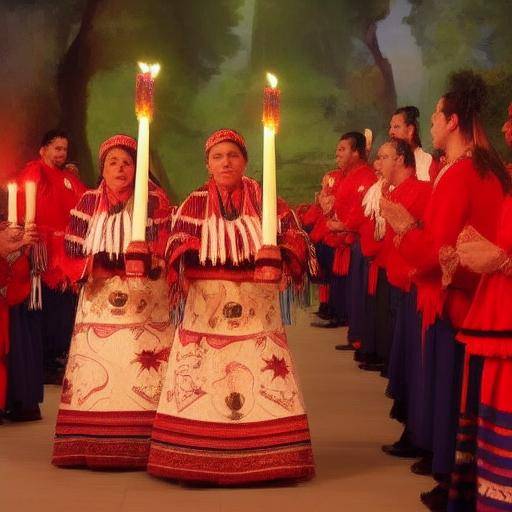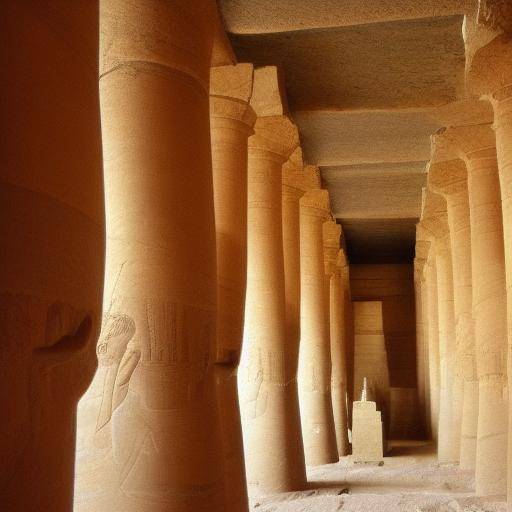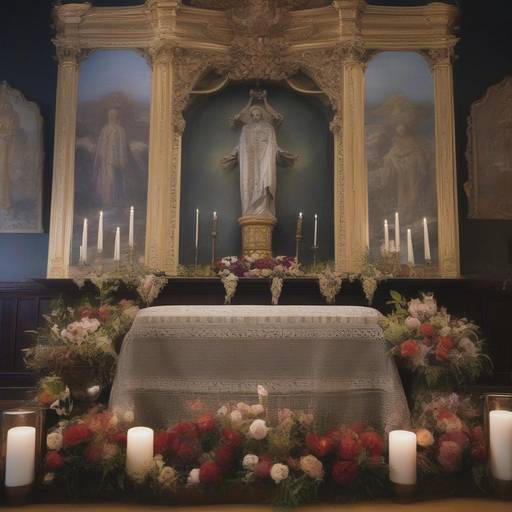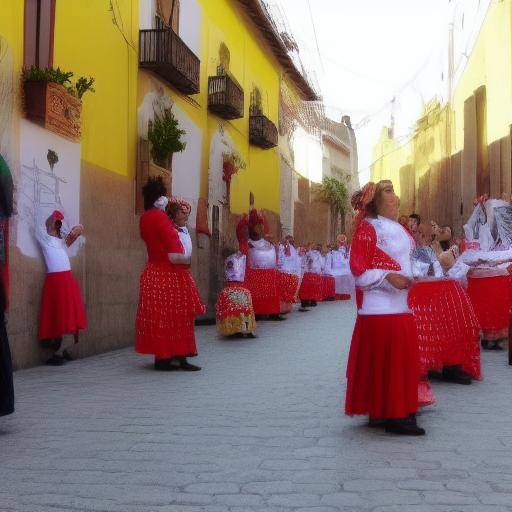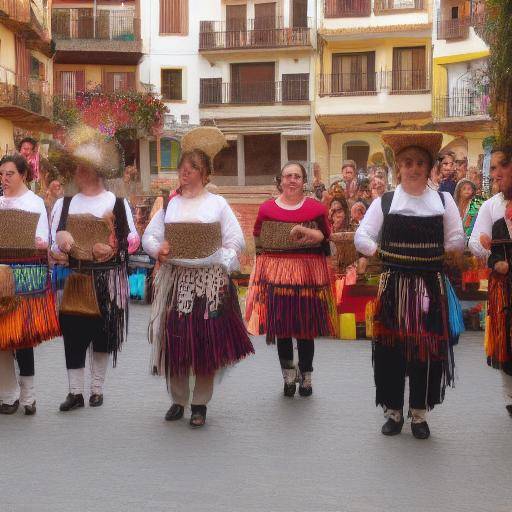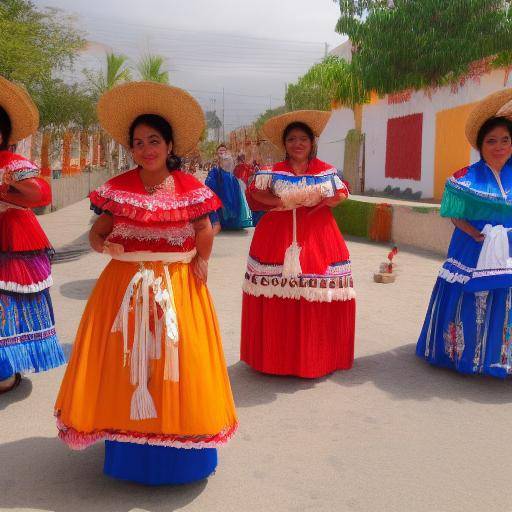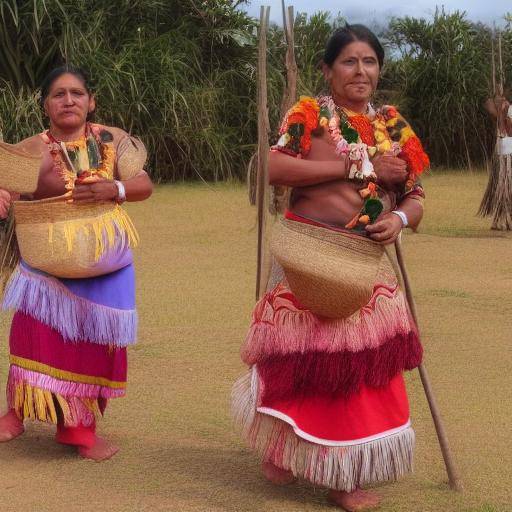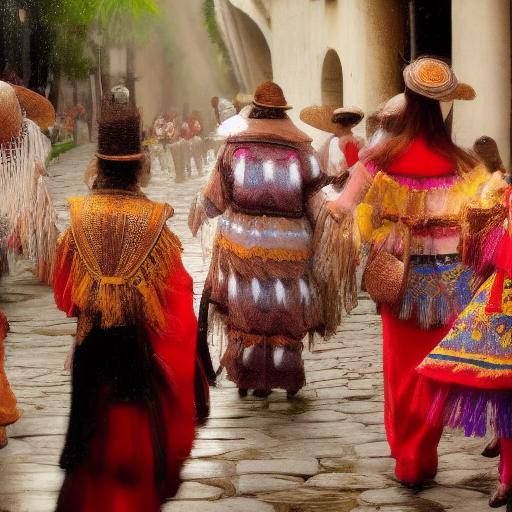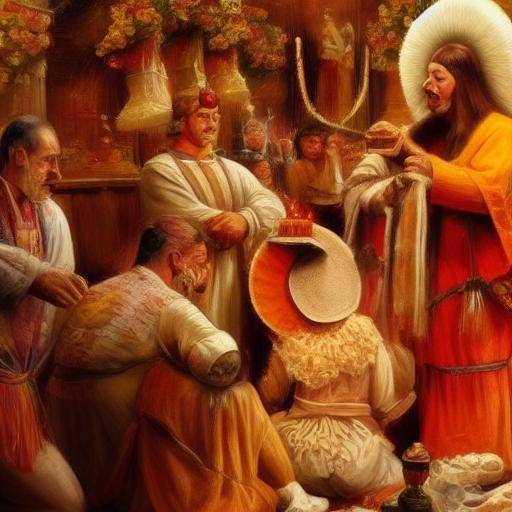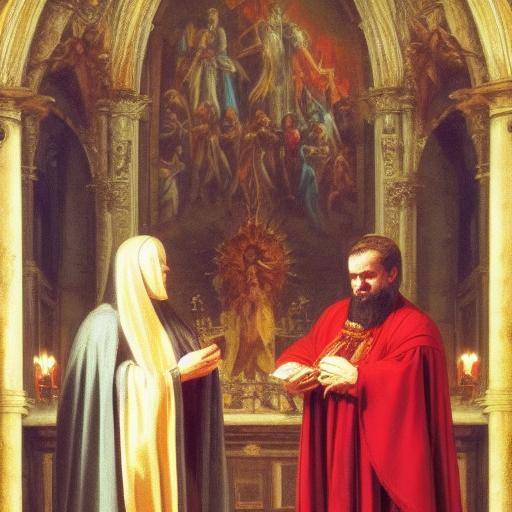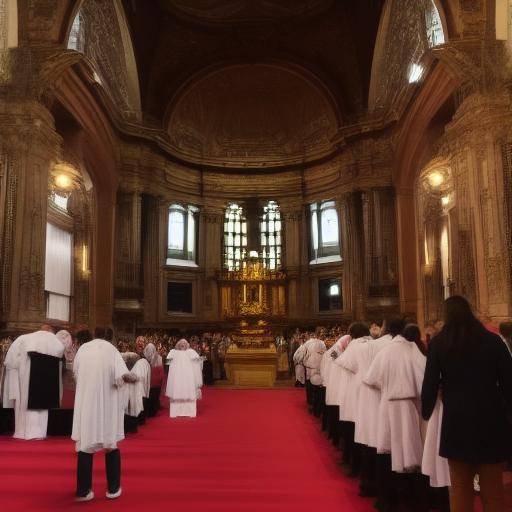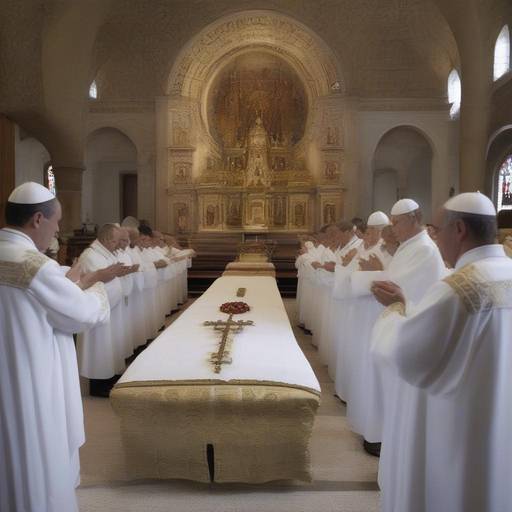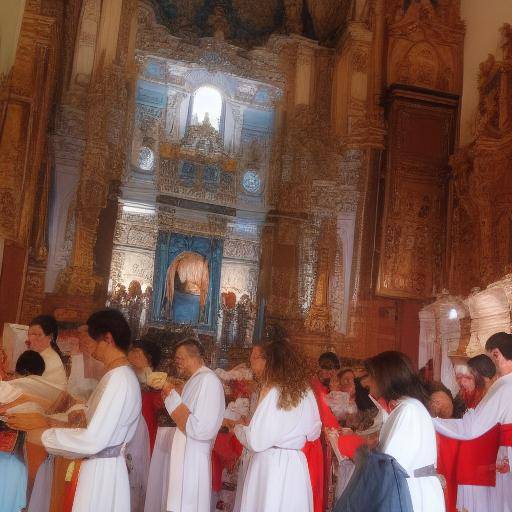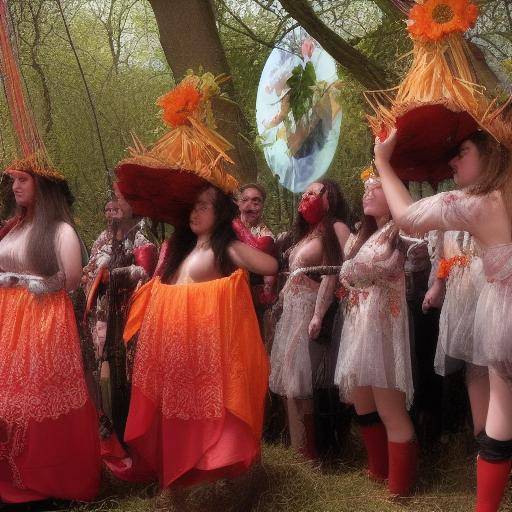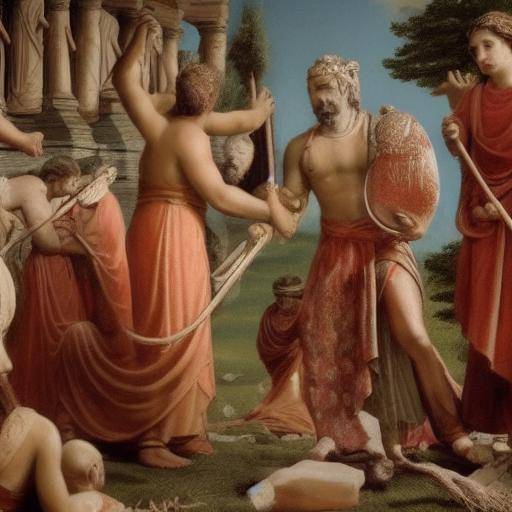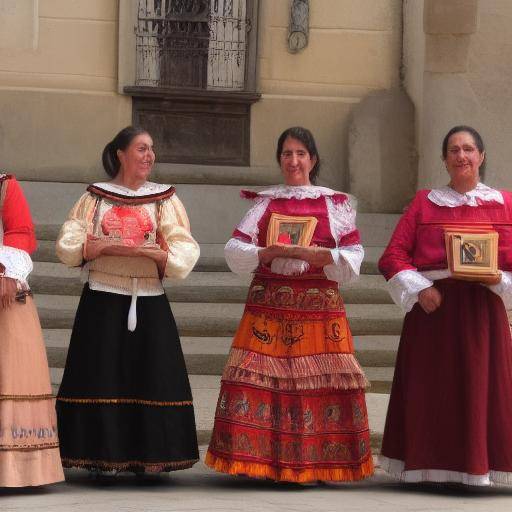
Introduction
Celtic culture is known for its rich ancestral traditions and rituals rooted in nature and spirituality. In this article, we will explore in depth the ancestral traditions of Celtic culture, its historical relevance, its distinctive rituals, and how these practices continue to resonate today. From the mysterious Druids to the seasonal celebrations, we will discover the richness and diversity of these ancient traditions. Prepare for a fascinating journey through time and Celtic cultural heritage.
History and Background
Celtic culture extends across various regions of Europe, including Ireland, Scotland, Wales, Brittany, and parts of Spain, Portugal, France, and Germany. Their ancestral traditions date back thousands of years, influencing beliefs, festivals, and practices that have passed from generation to generation.
Celts venerated nature and believed in the importance of living in harmony with the natural world. Their ancestral traditions were intrinsically linked to the cycles of the earth, astronomical phenomena, and spiritual connection with the elements. Druids, as key figures of Celtic society, played priestly, educational, and political roles, preserving and transmitting the ancestral traditions of generation to generation.
Druids: Guardians of Knowledge
Druids were wise and spiritual leaders who preserved wisdom, oral history, and ritual practices of Celtic culture. Their deep understanding of natural cycles, sacred forests, and divinatory practices made them venerated figures in Celtic society.
Seasonal Festivals and Celebrations
Celts celebrated significant festivals that reflected their connection to nature. Lugnasad, Samhain, Imbolc, and Beltane were seasonal celebrations marked by sacred rituals, dances, and offerings in honor of the gods and the fertility of the earth. These events not only marked the change of seasons, but also symbolized the renewal of life and the spiritual connection with the universe.
Analysis in Deep
Celtic ancestral traditions continue to fascinate many people today, attracting those who seek to reconnect with their roots, as well as those who love spirituality and nature. The growing popularity of Celtic culture has brought with it a renewed interest in its rituals and practices, creating a scenario in which these ancestral traditions can be appreciated and shared throughout the world.
Contemporary Relevance
The essence of Celtic ancestral traditions remains alive in a modern world. Many seek inspiration in Celtic rituals to celebrate natural cycles, honor their ancestors, and reconnect with ancestral wisdom. Celtic craftsmanship, traditional music, and ancient worldview remain sources of inspiration for artists and spiritual seekers today.
Challenges and Opportunities
As Celtic ancestral traditions gain popularity, challenges arise to preserve their authenticity and meaning. Cultural appropriation and marketing can distort the true essence of these practices, which poses challenges to maintain their spiritual and cultural integrity. However, opportunities are also open to educate and sensitize a wider audience on the importance of preserving and respecting these traditions.
Comprehensive review
Celtic ancestral traditions have left a lasting mark in various areas, from spirituality to artistic creativity. Exploring your legacy provides a deeper understanding of the complex network of practising beliefs that have influenced and inspired subsequent generations.
Applications and Best Practices
The ancestral wisdom of the Celts offers valuable lessons for those who seek harmony with nature and spiritual connection. The practice of honoring natural cycles, reverence for ancestors, and respect for land presents a model for a more conscious and sustainable life in the contemporary world.
Future Perspectives and Trends
As global awareness of the importance of preserving ancestral traditions increases, Celtic practices are likely to remain a source of inspiration and learning in the future. The integration of their rituals and knowledge into modern life offers opportunities to nurture a deeper sense of connection with the natural environment and spiritual heritage.
Comparative analysis
The intersection between ancestral traditions, Celtic culture, and rituals reveals a complex network of meanings, symbolisms, and practices that have endured over the centuries. Exploring the connections between these elements provides a more holistic perspective of the cultural and spiritual wealth of the Celts.
Similarities and Variances
Both ancestral traditions and Celtic rituals share a deep connection with nature, spirituality, and inherited wisdom. However, the specificities of each practice and its historical context reveal unique nuances that enrich the understanding of Celtic culture in its entirety.
The Synergy of Practices
The ancestral traditions and Celtic rituals intertwine in a harmonious dance of celebration, worship, and connection with the divine and the earthly. By exploring their points of convergence, a powerful combination is revealed that transcends time and space, inspiring those who seek spiritual connection and cultural roots.
Practical Tips and Accessible Recommendations
For those interested in integrating Celtic ancestral traditions into their daily lives, here are some practical recommendations:
- It celebrates natural cycles through small rituals, such as outdoor meditation or the creation of altars with natural elements.
- Research on Celtic Festivals and search for communities that share your interests to learn and celebrate together.
- Explore Celtic music and crafts as a way to connect with creativity and cultural expression.
Perceptions of Industry and Expert Reviews
The academic community, spiritual leaders, and history experts and anthropology offer valuable insights into Celtic ancestral traditions and their significance in contemporary society.
Dr. A. D. MacLeod, professor of Celtic Studies, shares: "Calta ancestral traditions are an invaluable treasure of ancestral wisdom that brings depth and meaning to our modern lives. By honoring these practices, we can find a greater sense of harmony and connection with our natural environment."
Case Studies and Practical Applications
Celebrations and Spiritual Reconnection
Sarah, a Celtic culture enthusiast, shares her experience: "Participating in Celtic rituals has helped me find a sense of belonging and inner peace. The connection to the earth and the ancient wisdom of my ancestors has enriched me in a way that I cannot express with words."
Future Trends and Predictions
As interest in Celtic ancestral traditions continues to grow, we are likely to see greater integration of these practices into contemporary culture. The search for spiritual connection and the desire to honor ancestral wisdom will continue to drive the revival of Celtic traditions in the years to come.
Conclusion
Ancient traditions in Celtic culture are an invaluable legacy that offers deep insights into the relationship between humanity and lanature. By exploring and honoring these practices, we can find inspiration, connection, and greater appreciation for the spiritual and cultural heritage that has endured over the centuries.
Frequently asked questions
1. What are some popular contemporary Celtic rituals?
At present, rituals such as the celebration of solstices and equinoxes, as well as the connection to sacred sites such as Stonehenge or Dry sites, continue to be popular practices among those interested in Celtic ancestral traditions.
2. How can I learn more about ancient Celtic traditions?
There are numerous books, online resources, and communities dedicated to preserving and sharing Celtic ancestral wisdom. Exploring these resources and participating in cultural events can provide a deeper understanding of these practices.
3. Are Celtic ancestral traditions relevant to people of different cultural backgrounds?
Yes, the essence of Celtic ancestral traditions, such as the connection with nature and reverence through the cycles of life, resonates universally. Many people from different cultures find inspiration and meaning in these rituals and practices.
4. Are efforts being made to preserve and protect Celtic ancestral traditions?
Yes, organizations and experts in cultural heritage work actively to preserve and protect Celtic ancestral traditions. This includes knowledge documentation, conservation of sacred sites, and education on the importance of respecting these practices.
5. How can I honor the ancestral Celtic traditions in a respectful way?
By honoring Celtic ancestral traditions, it is important to respect their authenticity and historical significance. This involves properly reporting, showing reverence for sacred symbols and celebrating with respect and awareness of cultural heritage.
6. What is the impact of Celtic ancestral traditions on contemporary culture?
Celtic ancestral traditions have influenced music, literature, art, and contemporary spirituality in many ways. Its impact is perceived in the connection with nature, the resurgence of seasonal festivals, and the exploration of ancient wisdom in everyday life.
Concluding, ancestral traditions in Celtic culture remain a source of inspiration, wisdom, and spiritual connection in the modern era. By honoring these practices, we explore a rich and significant cultural heritage that invites us to reconnect with nature and our ancestral roots.






